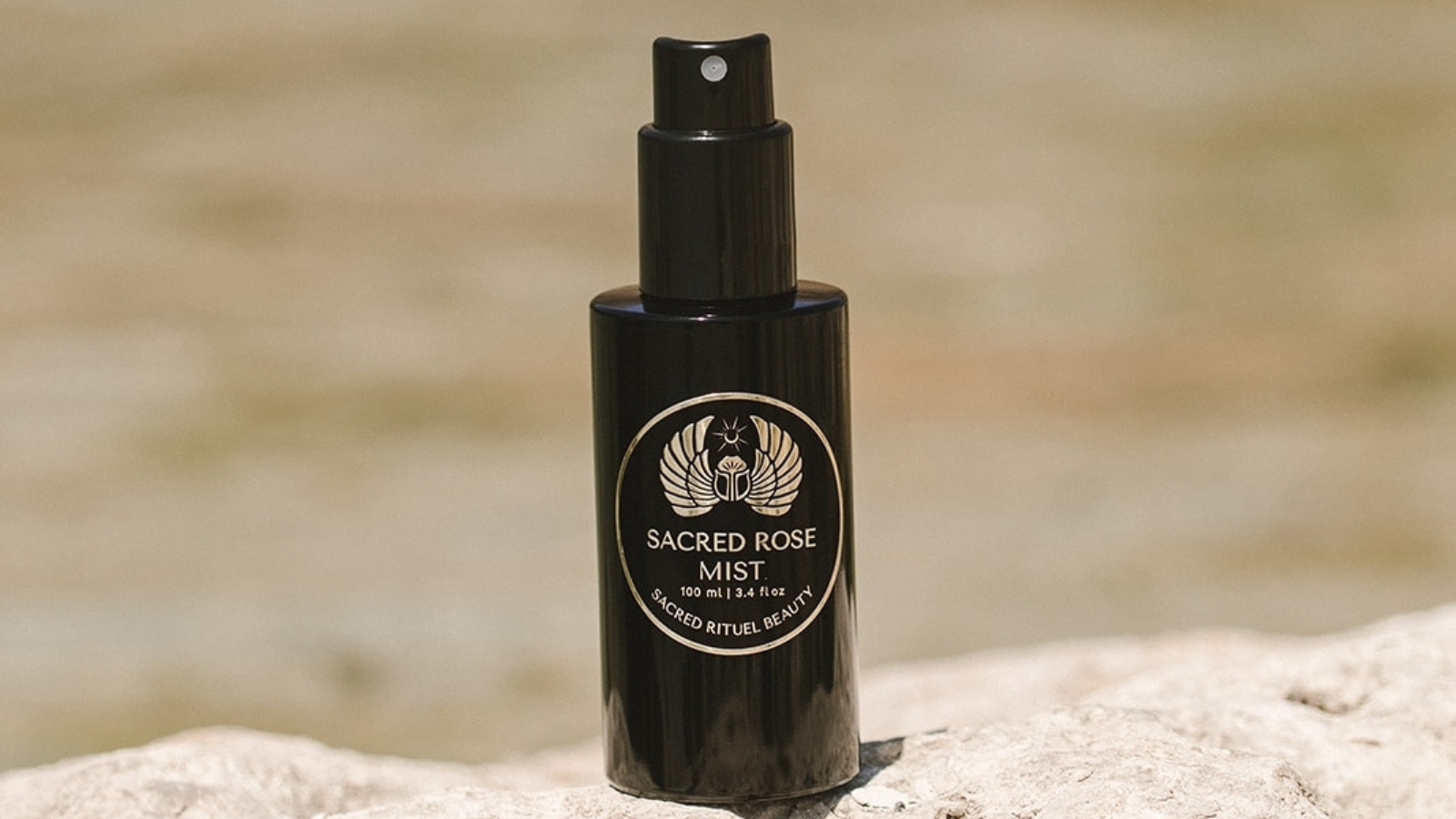
Sensitive Skin Care: Choosing The Right Products
Key Takeaways:
- Identify and Avoid Triggers: Understand common irritants for sensitive skin, such as harsh chemicals and extreme temperatures, and learn how to avoid them.
- Safe Product Selection: Discover how to select hypoallergenic, fragrance-free products and the importance of ingredient awareness to avoid skin irritation.
- Skincare Testing and Introduction: Learn the correct way to test and introduce new skincare products to minimize adverse reactions and maintain skin health. To Learn more, check out this blog on 7 Steps To Radiant Skin: Your Guide To Achieving Balanced, Glowing Complexions With Pure Ingredients.
Sensitive skin is a common concern for many, characterized by reactions such as redness, itching, burning, and dryness when exposed to certain products or environmental factors. Navigating the world of skincare can be daunting, especially when your skin seems to react unpredictably. However, understanding the needs of sensitive skin and choosing the right products can significantly improve its condition and your overall comfort. This guide aims to help individuals with sensitive skin make informed decisions about their skincare regimen, focusing on clean, organic, well-sourced, and sustainable products.
Elevate your sensitive skin care by incorporating Sacred Serum into your regimen. This product is specially formulated with organic, cold-pressed botanical oils and healing herbs, designed to nourish, protect, and balance your skin. Its gentle, effective formula is perfect for those looking to make clean, organic, and sustainable choices in their skincare, aligning with a holistic lifestyle for healthier, more radiant skin. Experience the transformation and enjoy the peace of mind that comes with using well-sourced, natural ingredients
Discover Your Skin's Inner Glow with Sacred Rituel
Eager to spoil your skin? Explore our selection and find the perfect product for you today. |
Understanding Sensitive Skin: Common Triggers And Symptoms
Identifying Your Sensitive Skin Type
Sensitive skin can manifest in various forms, often influenced by genetic factors or underlying conditions. It's crucial to recognize whether your sensitivity is a temporary reaction or part of a chronic condition like eczema, rosacea, or contact dermatitis. Understanding your skin type can guide you in choosing the correct care and prevention strategies.
Common Triggers For Sensitive Skin
Sensitive skin can be aggravated by environmental factors such as extreme temperatures, wind, and sun exposure. Chemicals found in skincare, cosmetics, and even household products can also lead to reactions. Ingredients like alcohol, synthetic fragrances, and certain preservatives are known irritants. Recognizing and avoiding these triggers can help in managing sensitive skin effectively.
Recognizing The Symptoms Of Sensitive Skin
Symptoms of sensitive skin include redness, itching, burning, and dryness. These reactions can vary in intensity and duration from person to person. It's important to note any patterns in your skin's reactions, as this can help identify specific triggers and inform your skincare choices.

The Importance Of Ingredient Awareness In Sensitive Skin Care
For individuals with sensitive skin, being vigilant about the ingredients in skincare products is not just beneficial—it's essential. Understanding which ingredients are likely to cause irritation can help you make safer, more informed decisions. Here are key aspects to consider:
Know Your Irritants And Allergens
Each person's skin is unique, meaning substances that irritate one individual may not affect another. Common irritants include alcohol, synthetic fragrances, sulfates, and certain preservatives like parabens. Allergens can also vary widely, but some people may react to natural ingredients like essential oils or botanical extracts. Keeping a diary of products and their effects can help pinpoint problematic ingredients.
Embrace Hypoallergenic And Fragrance-Free Products
Products labeled "hypoallergenic" are formulated to minimize the risk of allergic reactions. Similarly, "fragrance-free" or "unscented" products can significantly reduce the risk of skin irritation, as fragrances are among the most common causes of allergic responses in sensitive skin.
The Role Of Natural And Organic Ingredients
While natural and organic ingredients are often perceived as safer, this is not always the case for sensitive skin. Some natural substances can be potent irritants or allergens. It's important to research and understand the role and effects of each component in a product, regardless of its source.
Patch Testing: A Crucial Step
Before fully incorporating a new product into your routine, perform a patch test. Apply a small amount to a discreet skin area and monitor the reaction over 24 to 48 hours. This practice can prevent widespread reactions and help identify specific ingredients that your skin may not tolerate well.
How To Test Skincare Products For Sensitive Skin
When you have sensitive skin, introducing new skincare products into your routine requires caution to avoid adverse reactions. Here's a step-by-step guide on how to test skincare products safely:
Step 1: Start With A Patch Test
Before applying a new product over your entire face or body, conduct a patch test. Choose a small, discreet area of skin — typically behind the ear or on the inner forearm. Apply a small amount of the product and wait for 24 to 48 hours. If there is no reaction, the product is likely safe for you to use. However, no reaction in a patch test does not guarantee that you will not react with more extensive or repeated use.
Step 2: Read And Understand The Ingredients
Before even conducting a patch test, familiarize yourself with the product's ingredients. Look for any known irritants or allergens that have previously caused reactions. If you're unsure about an ingredient, consult a dermatologist or conduct further research.
Step 3: Introduce One Product At A Time
When adding new products to your skincare routine, do it gradually. Introduce only one product at a time and wait several days before adding another. This approach helps identify which product causes a reaction if one occurs.
Step 4: Monitor Your Skin’s Response
After the patch test and full application, closely monitor your skin for any signs of irritation, such as redness, itching, or burning. If you notice any adverse effects, discontinue use immediately. Keeping a skin diary can be helpful in tracking products used and any reactions they may cause.
Step 5: Consult With A Dermatologist
If you have persistent skin issues or severe reactions, it's crucial to consult with a dermatologist. They can provide personalized advice and recommend products that are less likely to cause irritation based on your skin's specific needs.
Deciphering Product Labels: What To Look For And What To Avoid
Navigating skincare product labels can be challenging, especially for those with sensitive skin. Understanding the terminology and identifying key ingredients to look for or avoid can make a significant difference. Here’s a guide to help you decipher product labels:
Understanding Key Terms
Choose non-comedogenic products to avoid clogged pores. Opt for hypoallergenic items to reduce allergic reaction risks, but use them cautiously as they're not officially regulated. Select fragrance-free options to prevent irritation in sensitive skin, noting that natural fragrances can still be problematic. Products labeled for sensitive skin are tailored to minimize irritation, but it's vital to review their ingredients for potential allergens.
Ingredients To Look For
Ceramides strengthen the skin barrier, promoting hydration and protection. Hyaluronic Acid, a potent humectant, attracts moisture for non-irritating hydration. Niacinamide, or Vitamin B3, reduces inflammation and redness. Aloe Vera offers soothing and anti-inflammatory benefits.
Ingredients To Avoid
Alcohol, particularly SD and denatured types, can dehydrate and irritate sensitive skin. Fragrances and parfums often cause allergic reactions. Sulfates, such as sodium lauryl sulfate, may remove natural oils, causing dryness and irritation. Although natural, essential oils can be strong irritants or allergens for sensitive skin.
The Order Of Ingredients
Ingredients are listed in order of concentration, from highest to lowest. If irritants or allergens are near the top of the list, the product is more likely to cause a reaction. Conversely, beneficial ingredients listed towards the end may not be present in effective concentrations.
Enhance your skincare routine with Sacred Rose Mist Toner for its calming benefits, particularly suitable for sensitive skin due to its low irritant concentration. Regular use of this toner helps nourish your skin, promoting a healthier, more radiant complexion.
Top Recommendations For Sensitive Skin Care Products
Finding the right skincare products is crucial for managing sensitive skin without causing irritation. Here are some top recommendations, based on their gentle formulations and beneficial ingredients:
Gentle Cleansers
Look for hydrating cleansers that are free from sulfates and fragrances. Products containing ceramides or hyaluronic acid can help maintain your skin's natural barrier while effectively removing dirt and makeup.
Soothing Toners
Choose alcohol-free toners that help restore the skin’s pH balance without drying it out. Ingredients like aloe vera and chamomile can provide soothing and anti-inflammatory benefits.

Moisturizers For Sensitive Skin
Moisturizers should be free from common irritants like fragrances and essential oils. Look for products with ceramides, niacinamide, or glycerin to help strengthen the skin barrier and retain moisture.
Sunscreens For Sensitive Skin
Sun protection is essential. Opt for mineral sunscreens containing zinc oxide or titanium dioxide, as they are less likely to cause irritation than chemical sunscreens.
Final Thoughts
Managing sensitive skin is more than choosing products; it's about understanding your skin and navigating skincare with knowledge and care. It's not just avoiding irritants but about creating a balanced, informed approach that promotes skin health and resilience. This perspective shifts the focus from merely reacting to skincare challenges to proactively understanding and addressing them. Ultimately, caring for sensitive skin is a journey of mindful selection and personal well-being, emphasizing the importance of informed and gentle care.
Improve your sensitive skin care with the Sacred Set, including the Serum and Rose Toner, tailored for a mindful skincare approach. This duo synergistically calms and nourishes your skin, offering a gentle yet effective regimen. Incorporate these clean, organic, and sustainable products into your daily routine to meet your skin's specific needs and enhance its health and resilience. Discover the benefits of the Sacred Set for a holistic skincare experience.
Read Also:
- The Benefits Of Antioxidants For Your Skin
- Superfoods For Beauty & Reversing Aging
- How Jojoba Oil Heals Both Acne And Dry Skin: A Skincare Adaptogen
Frequently Asked Questions
What is sensitive skin?
Sensitive skin is a condition where skin reacts to external factors or products, showing symptoms like redness, itching, burning, and dryness.
How can I determine if I have sensitive skin?
Assess your skin's reaction to different products or environmental factors. If you consistently experience irritation, you may have sensitive skin.
What are the common triggers for sensitive skin?
Common triggers include extreme temperatures, harsh chemicals, synthetic fragrances, and certain skincare ingredients.
How should I test a new skincare product?
Perform a patch test by applying a small amount of the product to a discreet area and wait 24-48 hours for any adverse reactions.
What ingredients should I avoid if I have sensitive skin?
Avoid irritants like alcohol, synthetic fragrances, sulfates, and certain preservatives like parabens.
What does 'hypoallergenic' mean?
Hypoallergenic products are formulated to minimize the risk of allergic reactions, but it’s important to still check their ingredients.
Can natural and organic ingredients irritate sensitive skin?
Yes, some natural substances can be irritants or allergens, so it's important to understand the effects of each ingredient.
What should I look for in a skincare label if I have sensitive skin?
Look for products labeled as hypoallergenic, fragrance-free, and suitable for sensitive skin, but always check the full ingredient list.
How often should I introduce new products into my skincare routine?
Introduce one product at a time and wait several days before adding another to identify any potential reactions.
What steps can I take if I have a reaction to a skincare product?
Discontinue use immediately, apply a soothing agent like aloe vera, and consult a dermatologist if the reaction is severe or persistent.
Sources:
- Panico, A., Serio, F., Bagordo, F., Grassi, T., Idolo, A., DE Giorgi, M., Guido, M., Congedo, M., & DE Donno, A. (2019). Skin safety and health prevention: an overview of chemicals in cosmetic products. Journal of Preventive Medicine and Hygiene, 60(1), E50–E57. https://doi.org/10.15167/2421-4248/jpmh2019.60.1.1080
- Lazzarini, R., Duarte, I., & Ferreira, A. L. (2013). Patch tests. Anais Brasileiros de Dermatologia, 88(6), 879–888. https://doi.org/10.1590/abd1806-4841.20132323
- Duarte, I., Silveira, J. E. P. S., Hafner, M. de F. S., Toyota, R., & Pedroso, D. M. M. (2017). Sensitive skin: review of an ascending concept. Anais Brasileiros de Dermatologia, 92(4), 521–525. https://doi.org/10.1590/abd1806-4841.201756111
- Purnamawati, S., Indrastuti, N., Danarti, R., & Saefudin, T. (2017). The Role of Moisturizers in Addressing Various Kinds of Dermatitis: A Review. Clinical Medicine & Research, 15(3-4), 75–87. https://doi.org/10.3121/cmr.2017.1363







Comments (0)
There are no comments for this article. Be the first one to leave a message!